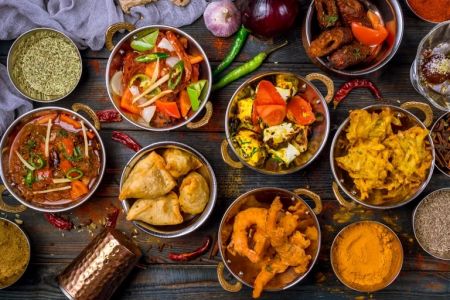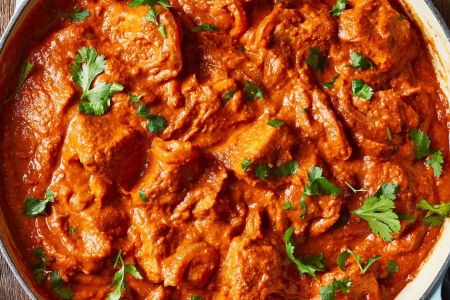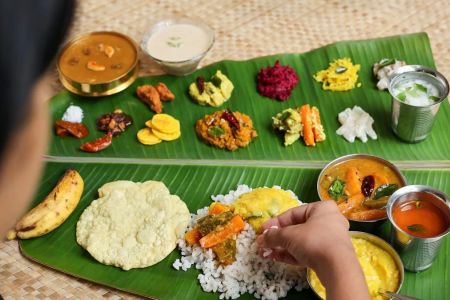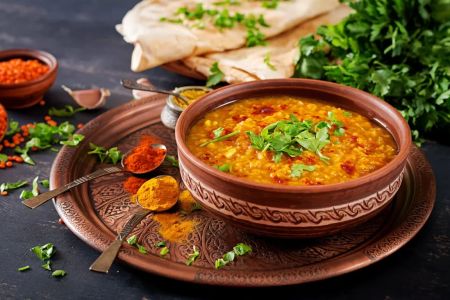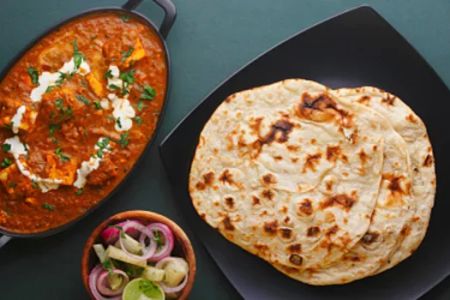Indian Vegetarian Dishes for a Healthy Diet: A Journey Through Flavorful, Nutritious Recipes
1. Health Benefits of Indian Vegetarian Dishes
Indian vegetarian dishes are not only delicious but also packed with nutrients that support a healthy diet. The vibrant spices, herbs, and fresh vegetables used in Indian cuisine help to boost immunity, aid digestion, and promote overall well-being. Whether you’re looking to reduce cholesterol, manage your weight, or increase your energy levels, these dishes provide an excellent source of vitamins, minerals, and antioxidants.
Spices such as turmeric, cumin, and coriander are known for their anti-inflammatory properties, while lentils and beans offer high-quality protein and fiber. Additionally, the abundance of vegetables like spinach, cauliflower, and eggplant ensure you’re getting a variety of essential nutrients with every bite.
2. Must-Try Indian Vegetarian Dishes for a Healthy Lifestyle
Aloo Gobi (Potato and Cauliflower Curry)
Aloo Gobi is a staple in many Indian households, combining two healthy vegetables—potatoes and cauliflower—cooked with an array of aromatic spices. This dish is rich in fiber and antioxidants, making it a great addition to any healthy diet. Serve it with whole wheat roti for a complete meal that is both nourishing and satisfying.
Chana Masala (Chickpea Curry)
Chana Masala is another fantastic option for those looking for a high-protein, vegetarian dish. Chickpeas are an excellent source of plant-based protein and fiber, which help with digestion and muscle repair. This hearty dish, made with tomatoes, onions, and a blend of spices, is both flavorful and filling. Pair it with brown rice or quinoa for a nutrient-packed meal.
Palak Paneer (Spinach and Cottage Cheese Curry)
Palak Paneer is a delicious and nutritious dish that combines spinach, a leafy green rich in iron and vitamins, with paneer, a type of fresh cheese. This dish is especially beneficial for vegetarians seeking an alternative source of iron and calcium. The combination of spices such as garam masala and cumin gives it a rich, savory flavor that pairs wonderfully with naan or rice.
Dal Tadka (Lentil Curry)
Lentils are a key ingredient in Indian vegetarian cuisine and provide a significant amount of protein and fiber. Dal Tadka, made from yellow lentils and seasoned with ghee and spices, is a comforting dish that helps lower cholesterol and improve digestion. Serve it with basmati rice for a wholesome meal.
3. How Indian Vegetarian Dishes Promote Wellness
Indian vegetarian dishes emphasize the balance of flavors, nutrients, and colors, ensuring that each meal is a feast for both the body and the senses. The use of healthy fats like ghee, combined with fresh, locally sourced ingredients, ensures that these dishes are not only nutritious but also naturally low in unhealthy fats and sugars.
Many dishes are also rich in complex carbohydrates, which release energy slowly, helping to maintain steady blood sugar levels throughout the day. This makes Indian vegetarian cuisine ideal for those looking to manage their weight or reduce their risk of chronic diseases.
Moreover, the practice of incorporating a wide variety of spices into meals provides additional health benefits. From improving digestion to reducing inflammation, Indian spices are nature’s medicine. When enjoyed as part of a balanced diet, Indian vegetarian dishes contribute to a healthier, more energized lifestyle.
Ready to Explore Indian Flavors in Person?
For those looking to fully immerse themselves in the vibrant world of Indian cuisine, there’s no better way than to visit India itself! Explore local markets, visit authentic restaurants, and take part in cooking classes to learn how to make these healthy dishes yourself. India’s culinary diversity is endless, and every region has its own unique take on vegetarian cuisine.
Want to experience the best of India’s vegetarian dishes and culture? Click here to plan your trip with Travel India One and embark on a culinary adventure that will leave you craving more.







